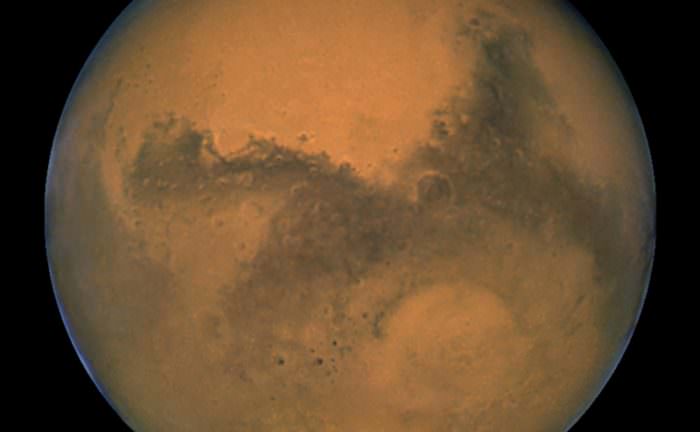These are the 40 Who Might Die on Mars

If there were an Olympics for ambition, the Dutch-based non-profit organization Mars One would surely be on the podium.
If you haven’t heard of them, (and we expect you have,) they are the group that plans to send colonists to Mars on a one-way trip, starting in the year 2026. Only 24 colonists will be selected for the dubious distinction of dying on Mars, but that hasn’t stopped 200,000 people from 140 countries from signing up and going through the selection process.
There are 100 people who have made it through the selection process so far. Another five day testing phase will knock that number down to 40, out of which 24 will be chosen as the lucky ones. The latest testing will start soon. According to Mars One, most of their testing is the same as the testing that NASA does on their astronauts.
At least some of the candidates have serious backgrounds. One, Zachary Gallegos, is a geologist and field chemist who works with the Mars Science Laboratory. Here’s what he has to say:
All of this testing and narrowing down is partially funded by a reality show, which adds to the sort of carnival atmosphere around the whole thing, and makes it hard to take it seriously.
But, some people are serious about it.
In a statement, Mars One commented on the upcoming testing:
“Over the course of five days, candidates will face various challenges. It will be the first time all candidates will meet in person and demonstrate their capabilities as a team.”
“In this round the candidates will play an active role in decision making/group formation. Mars One has asked the candidates to group themselves into teams with the people they believe they can work well with.”
A human presence on Mars is a great idea, of course. But it seems fatalistic, and pointless, to choose to die there. And rest assured, these colonists are meant to die there.
Mars One addresses this kind of thinking on their website:
“For anyone not interested to go to Mars, moving permanently to Mars would be the worst kind of punishment. Most people would give an arm and a leg to be allowed to stay on Earth so it is often difficult for them to understand why anyone would want to go.”
“Yet many people apply for Mars One’s mission and these are the people who dream about someday living on Mars. They would give up anything for the opportunity and it is often difficult for them to understand why anyone would not want to go.”
Fair enough. Maybe these are the types of people who really contribute in driving humanity forward.
NASA is planning to get humans to Mars in the 2030s, and Elon Musk says he’ll do it even earlier. But they plan to bring people back. If they can provide return trips, it seems a wasteful sacrifice to die on Mars when they don’t have to. Couldn’t successful colonists contribute a lot to humanity if they were to return to Earth after their successful missions?
Mars One seems to gloss over a lot of problems. Here’s some more from their website:
A new group of four astronauts will land on Mars every two years, steadily increasing the settlement’s size. Eventually, a living unit will be built from local materials, large enough to grow trees.
As more astronauts arrive, the creativity applied to settlement expansion will certainly give way to ideas and innovation that cannot be conceived now. But it can be expected that the human spirit will continue to persevere, and even thrive in this challenging environment.
“A living unit will be built from local materials, large enough to grow trees.” A simple sentence, which obscures so much complexity. Will they mine and refine iron ore? What do they have in mind?
I don’t want to be a Debbie Downer about it. I love the spirit behind the whole thing. But it takes so much rigorous planning and execution to establish a colony on Mars. And money. How will it all work?
In the end, the whole thing is a long shot. Mars One says they have visited and talked to engineering and technological suppliers globally, and that their timeline and planning is based on this feedback. For example, they say they intend to use a Falcon Heavy rocket from SpaceX to launch their ship. But so much detail is left out. The Falcon Heavy doesn’t even exist yet, and Mars One has no control or input into the rocket’s development.
Take a look at the two sentences describing how they will communicate with Earth:
“The communications system will consist of two communications satellites and Earth ground stations. It will transmit data from Mars to Earth and back.”
Does this type of brevity inspire confidence?
For at least 200,000 people, the answer is “yes.”
The post These are the 40 Who Might Die on Mars appeared first on Universe Today.